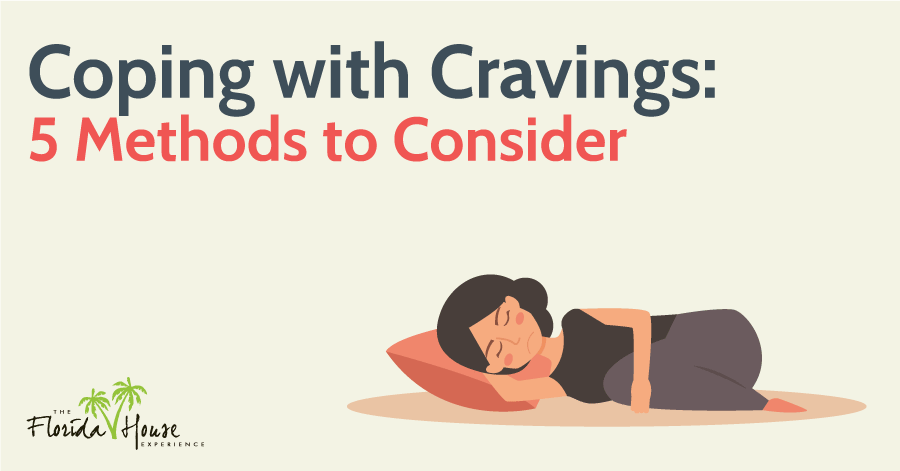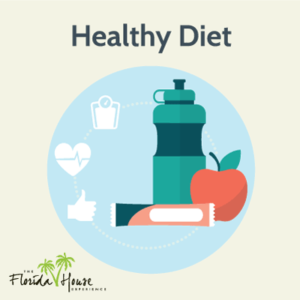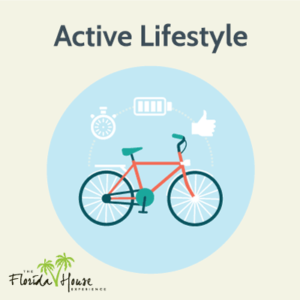
In today’s world, many of us are either struggling with addictions ourselves or we know someone who is. Unfortunately, part of the problem with addiction is that fact that once the substance is no longer present, withdrawal sets in, causing all sorts of other issues that tend to keep the addict stuck in the addiction.
Withdrawal is a process that follows when someone decreases the dosage of a drug being abused or quits it altogether. It consists of a set of symptoms, all of which are predictable and uncomfortable. Withdrawal occurs because the body is trying to suppress the physiological functions that are now overactive or to stimulate the parts that are depressed due to the absence of the drug. One of the signs of withdrawal is substance cravings. Cravings are the conscious desire to reuse a particular drug. It is the body yearning for the high that the drug produces. While cravings can be intense, there are numerous ways to prevent relapse so sobriety can be achieved.
What are Cravings?
Cravings are essentially strong memories linked to the effects that drugs have on the brain’s neurochemistry. Through imaging studies, we have learned that when pictures featuring drug use are displayed to addicts, they stimulate parts of the brain. The firing of neurotransmitters is a common after-effect of drug consumption and is the process that not only creates the ‘high’ but stores it in memory. Since cravings are memories they are simply the body trying to re-experience the high caused by drugs and so can manifest with intense physical and emotional reactions.
How to Quell Cravings:
It is important to understand how to prevent relapse as someone seeking drug addiction treatment in order to avoid the struggles that are brought on when trying to overcome a relapse. Consider these tips for preventing a relapse:
 1. Maintain diet, nutrition, and hydration: Eating and drinking are both major aspects of treatment. Many people have preferences for what they like to eat and drink, so regulating nutrition is a rather inexpensive way to deal with cravings and prevent relapse that almost anyone can utilize. People have found that certain foods and drinks stimulate positive memories, ones strong enough to mask and replace the negative or fleeting experiences associated with taking drugs. Having a set diet in your daily life will help give a state of order to your life that drugs may have stolen from you. Keeping foods and drinks that you favor should be kept in so that you are still enjoying what you put into your body. Foods high in vitamins and proteins not only boost proper brain function and bodily health but they also reduce drug cravings and keep you in a positive emotional state. Taking supplements can also weaken cravings. Studies show that many dealing with addiction are deficient in vitamins or iron or vitamins. While an individual may think the drugs are what they are lacking, supplements are really what they need to fill that void. When your body is unbalanced, withdrawal symptoms can be more painful and cravings more difficult to ignore. Another major sign of withdrawal is dehydration, which is mistaken for drug cravings. Drinking enough water will not only push away those cravings but heal the brain and body from drug use. Water should not be underestimated as it is a critical component of the body and makes up almost sixty percent of your weight. Reparative properties aside, water is essential to the functioning of all bodily systems. It also disposes of waste from drugs and alcohol out of your body through urination, perspiration, and bowel movements. Men should drink about 15.5 cups (or 3.7 liters) of fluids while women need to consume 11.5 cups (2.7 liters) to maintain balance and ward off cravings.
1. Maintain diet, nutrition, and hydration: Eating and drinking are both major aspects of treatment. Many people have preferences for what they like to eat and drink, so regulating nutrition is a rather inexpensive way to deal with cravings and prevent relapse that almost anyone can utilize. People have found that certain foods and drinks stimulate positive memories, ones strong enough to mask and replace the negative or fleeting experiences associated with taking drugs. Having a set diet in your daily life will help give a state of order to your life that drugs may have stolen from you. Keeping foods and drinks that you favor should be kept in so that you are still enjoying what you put into your body. Foods high in vitamins and proteins not only boost proper brain function and bodily health but they also reduce drug cravings and keep you in a positive emotional state. Taking supplements can also weaken cravings. Studies show that many dealing with addiction are deficient in vitamins or iron or vitamins. While an individual may think the drugs are what they are lacking, supplements are really what they need to fill that void. When your body is unbalanced, withdrawal symptoms can be more painful and cravings more difficult to ignore. Another major sign of withdrawal is dehydration, which is mistaken for drug cravings. Drinking enough water will not only push away those cravings but heal the brain and body from drug use. Water should not be underestimated as it is a critical component of the body and makes up almost sixty percent of your weight. Reparative properties aside, water is essential to the functioning of all bodily systems. It also disposes of waste from drugs and alcohol out of your body through urination, perspiration, and bowel movements. Men should drink about 15.5 cups (or 3.7 liters) of fluids while women need to consume 11.5 cups (2.7 liters) to maintain balance and ward off cravings.
2. Take advantage of medication: Withdrawal is an incredibly taxing process to undergo and each individual experiences it differently. There is a social prejudice against people struggling with addiction needing to use the medication in recovery. However, whatever it takes to make withdrawal easier and healthier should be encouraged. Needing pills to kick cravings and get clean from drug abuse is not a sign of weakness. There are medications being prescribed to minimize drug cravings and are recommended by healthcare providers. This particularly popular in the treatment of opioid addiction and has been shown to prevent relapse. Lofexidine is a non-opioid medication that can ease the discomfort of withdrawal and is approved by the Food and Drug Administration to do so. Other commonly used drugs for pain management are methadone and buprenorphine which bind to the same receptors that heroin does but are weaker and do not induce powerful cravings, permitting the user to stop chasing a high. Naltrexone is a non-addictive drug that cuts off receptors in the brain completely and blocks the effects of opioids. So, when someone consumes any type of opioid, the pain, addiction, and pleasure regions of the brain will not feel the drug. This limits the cravings of withdrawal by making the former user uninterested in the substance and prevents relapse since the opioid receptions have been capped off.
3. Join medical detox program: Medical detox programs, such as those at FHE Health, usually last for a week and help to ensure that addicts become accustomed to the structure. Such detox programs are accompanied by twenty-four-hour monitoring and medical care to help you deal with cravings with the aid of specialists. They are so regimented and are often the most efficient way to get a user through the day without needing to abuse drugs and thus prevent relapse. Medical detox itself is defined as the act of expelling from the body harmful substances. The reason they are only about a week long is that that is frequently how long it takes for the body to regain stability and not have intense cravings to re-abuse drugs.
4. Get proper rest: Better rest greatly improves cognitive functioning. Getting the right amount of sleep nightly will help you deal with changes in your mood and drug cravings. Often times, drugs upset your sleep schedule and so sleeping more will ward off the cravings for drugs that once gave you insomnia and restlessness. Make sure to regulate your schedule and do not oversleep. Go to bed at the same time every night and wake up in the morning at a set time. Allow for a short nap every day if needed to get an extra energy boost to make it throughout the day. Remember to prevent overstimulation before going to bed, which can be done by avoiding things like television and exercise that elicit a reaction from the body. Proper breathing can mask stimulation by relaxing the body and achieving a state of calm. As many as 20% of Americans use alcohol to induce sleep as it is depressant that causes drowsiness. Based on this, self-regulating your sleep will curb the cravings that come from drugs that were used to make you fall asleep or stay awake.
 5. Stay physically active: A decent amount of exercise daily triggers the release of endorphins in the brain. Having this neurotransmitter activity naturally and healthily will allow for cravings to be dulled since the drug is not needed to produce the euphoria that exercise is generating. It also helps the brain to restore its chemical balance and increases consumption of water, makes an individual sleepier, and encourages him or her to eat healthier. Thus, cravings are lowered as all of these other needs are being fulfilled. Mix up your routine every day so that exercise does not lose its appeal. One day you can go to the gym to lift weights, another to run on the treadmill, while yoga is a good relaxing technique to refocus your mind away from cravings.
5. Stay physically active: A decent amount of exercise daily triggers the release of endorphins in the brain. Having this neurotransmitter activity naturally and healthily will allow for cravings to be dulled since the drug is not needed to produce the euphoria that exercise is generating. It also helps the brain to restore its chemical balance and increases consumption of water, makes an individual sleepier, and encourages him or her to eat healthier. Thus, cravings are lowered as all of these other needs are being fulfilled. Mix up your routine every day so that exercise does not lose its appeal. One day you can go to the gym to lift weights, another to run on the treadmill, while yoga is a good relaxing technique to refocus your mind away from cravings.
Contact Florida House
FHE Health offers our clients numerous medically assisted treatment programs catered to the individual needs of patients. We know that withdrawal can be a particularly painful and uncomfortable process for addicts trying to get clean. The intensity of withdrawal is increased with cravings for drugs and/or alcohol that can lead a user to return to old habits. However, relapse prevention is not only entirely possible, but we can actually help you to achieve it. Our services will place you under the supervision of a team of highly trained and compassionate doctors, nurses, and therapists who offer care and support throughout recovery. If you or someone you know is struggling with drug cravings, learn more about methods to cope with cravings and how to prevent relapse by speaking with one of our representatives at 833-596-3502 for assistance.






